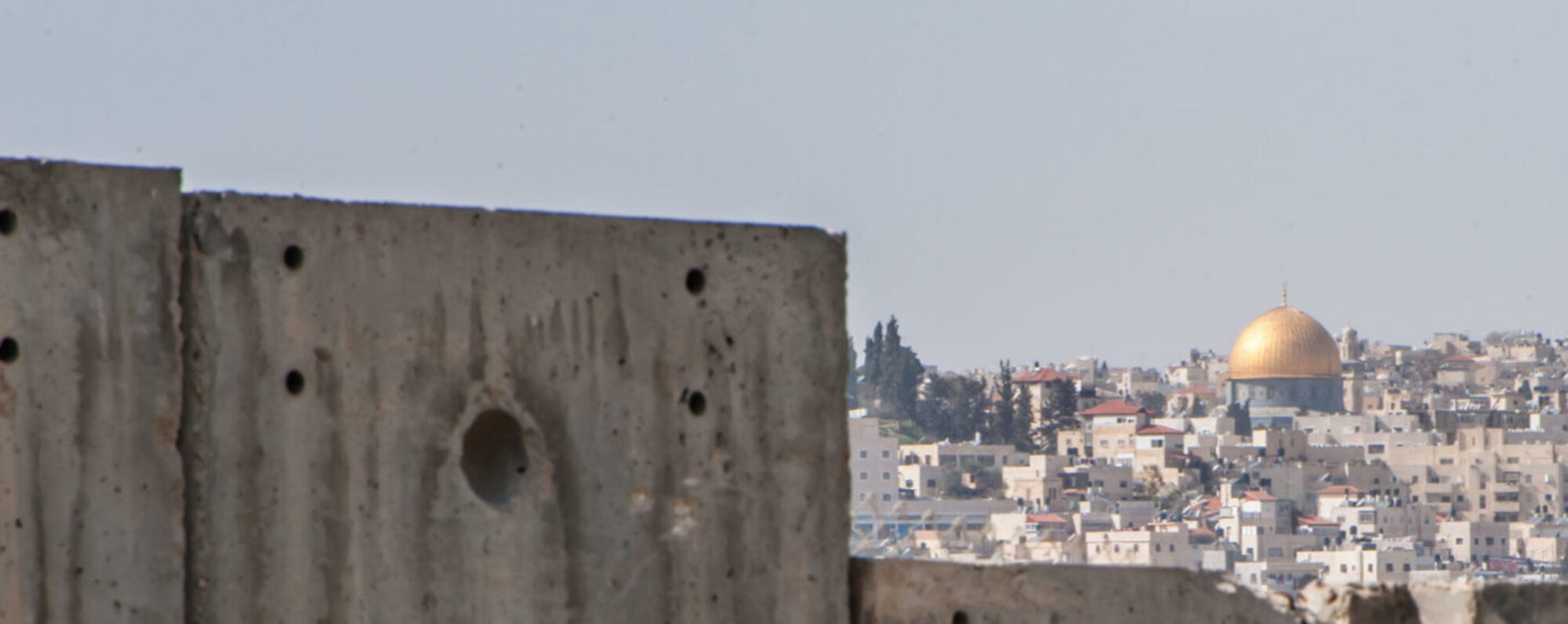Friends, Partners & Allies


Peace & Justice Center of Sonoma County
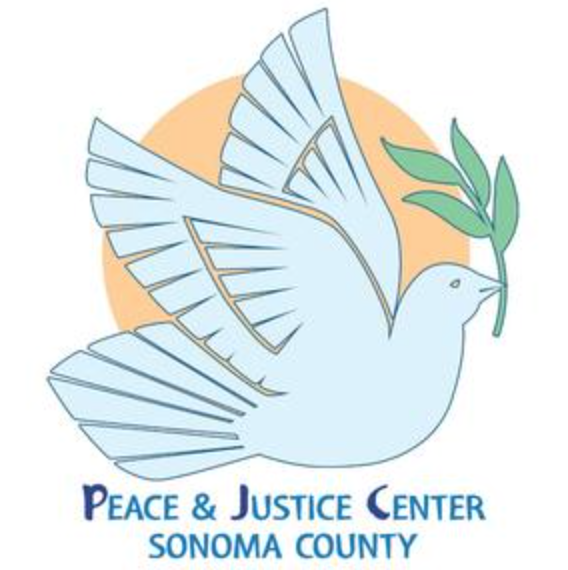
The Peace & Justice Center of Sonoma County envisions a world of Peace & Justice, where differences are respected, conflicts are addressed nonviolently, oppressive structures are dismantled, and people live in harmony with the earth and one another.
467 Sebastopol Avenue, Santa Rosa, CA, 95401, 707-575-8902, facebook.com/pjc.sonoma
FOSNA Friends of Sabeel North America
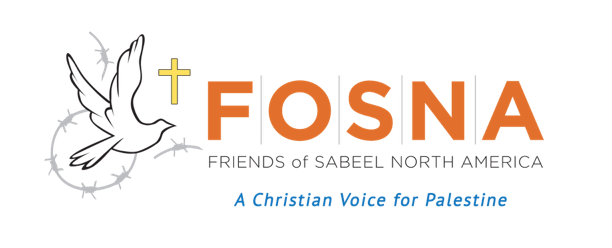
Friends of Sabeel North America (FOSNA) is a trans-denominational Christian organization seeking justice and peace in the Holy Land through education, advocacy, and nonviolent action.
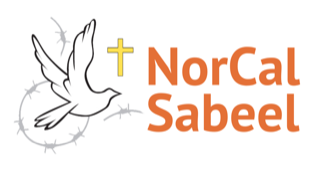
NorCal Sabeel is a San Francisco Bay Area–based group dedicated to organizing and participating in events that advance peace and justice for Palestinians. Its mission is to advocate for Palestinian human rights and to amplify the voices of Palestinians.
Meca for Peace – Middle East Children’s Alliance
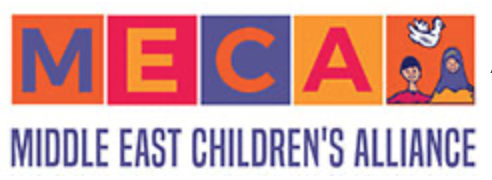
The Middle East Children’s Alliance is a nonprofit organization working for the rights and the well-being of children in the Middle East.
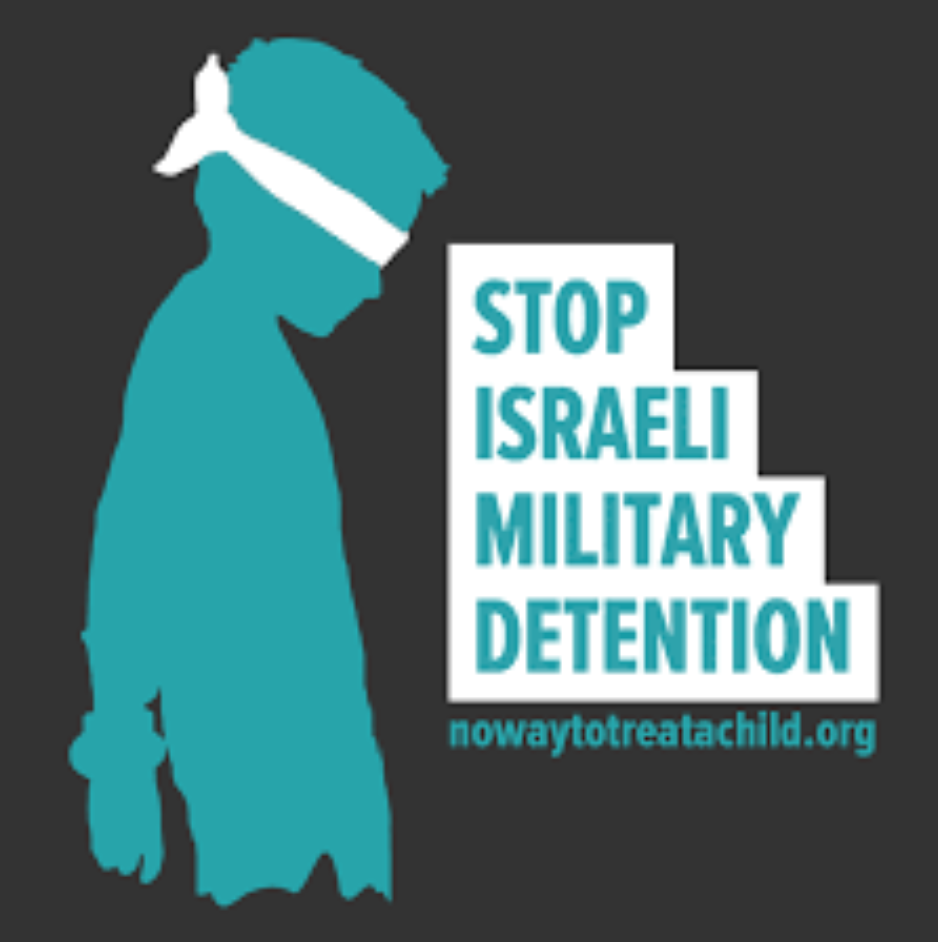
Palestinian children have the right to a safe and just future. We believe the United States government must use all available means to pressure relevant Israeli authorities to end the detention and abuse of Palestinian children.
The No Way to Treat a Child campaign seeks to challenge and end Israel’s prolonged military occupation of Palestinians by exposing widespread and systematic ill-treatment of Palestinian children in the Israeli military detention system. It is a joint project of Defense for Children International – Palestine and American Friends Service Committee.
Defense for Children Palestine
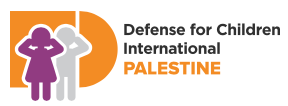
Our mission is to promote and protect the human rights of Palestinian children.
Defense for Children International – Palestine (DCIP) is an independent, local Palestinian child rights organization dedicated to defending and promoting the rights of children living in the West Bank, including East Jerusalem, and the Gaza Strip. Since 1991, they have investigated, documented, and exposed grave human rights violations against children; provided legal services to children in urgent need; held Israeli and Palestinian authorities accountable to universal human rights principles; and advocated at the international and national levels to advance access to justice and protection for children.

Boycott, Divestment, Sanctions (BDS) is a Palestinian-led movement for freedom, justice and equality. BDS upholds the simple principle that Palestinians are entitled to the same rights as the rest of humanity. It works to end international support for Israel’s oppression of Palestinians and pressure Israel to comply with international law.
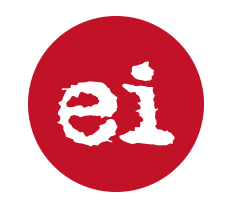
The Electronic Intifada is an independent online news publication and educational resource focusing on Palestine, its people, politics, culture and place in the world.
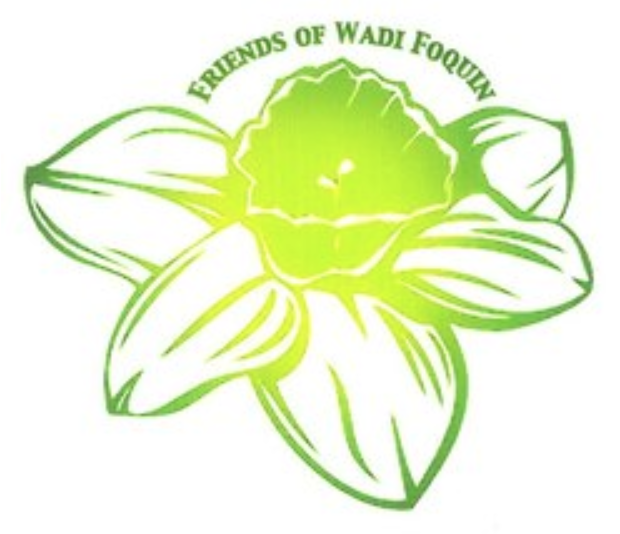
Wadi Foquin is a small village near Bethlehem in the occupied West Bank. It lies in a rich agricultural valley on the Green Line—the Israel-Palestine border. Like many other villages in the West Bank, Wadi Foquin is losing generations-old farmland due to settlement construction and extension of Israel’s separation barrier, both illegal under international law. Friends of Wadi Foquin is a community development project supported by the United Methodist Church. See our Blog page for more.
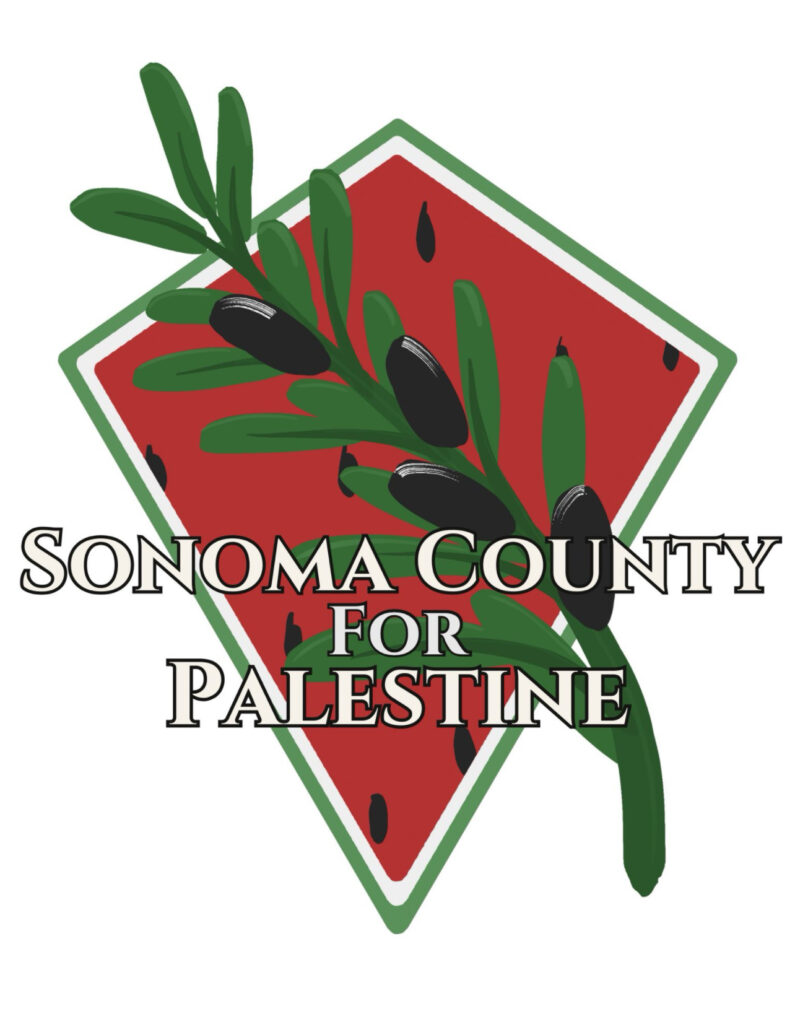
SoCo Community on unceded Miwok, Patwin, Pomo, and Wappo land for the Liberation of Falasteen

Speaking of Palestine on KBBF 89.1 FM / KBBF.net – (Bilingual Public Radio since 1973)

Hosted by Rebel Fagin, Therese Mughannan, Lois Pearlman & Cynthia Poten. New shows on 1st and 3rd Mondays. Shows repeat on 2nd and 4th Mondays.
Speaking of Palestine can also be heard on KRJF 92.3 FM and KWTF 88.1 FM Tuesdays @ 8:00 pm AND KIDE Hoopa Tribal Radio 91.3 FM 1st and 3rd Sundays @ 4:00pm (https://www.kidefm.org)
Speaking of Palestine tells the other side of the Palestine/Israel conflict, the side often ignored by the corporate media. Speaking of Palestine provides news on the events affecting Palestine.
Check out these shows:
10/23/23 Speaking of Palestine: A look at the invasion of Gaza, some music and poetry in a special 2 hour show.
4/15/24 Speaking of Palestine: International Update, a response to Palestinian author Raja Shehaden, a speech by Max Blumenthal, taxes going to Israel, music and a poem.
Click here to hear all Speaking of Palestine shows

Targeted BDS Campaigns
This is an excerpt from the 4/1/24 “Speaking of Palestine” radio show about targeted vs untargeted Boycott, Divestment & Sanctions actions.

two different systems on the land between the Jordan River and the Mediterranean Sea: one system that privileges Jews, and another that discriminates against Palestinians. Now, the rest of the world is catching
up. In the past year, the leading global and Israeli human rights groups have joined their Palestinian
counterparts in calling Israel an Apartheid state. From the occupied West Bank, East Jerusalem, and Gaza,
to Palestinian communities inside Israel, this is a look Inside Israeli Apartheid.

On Gaza
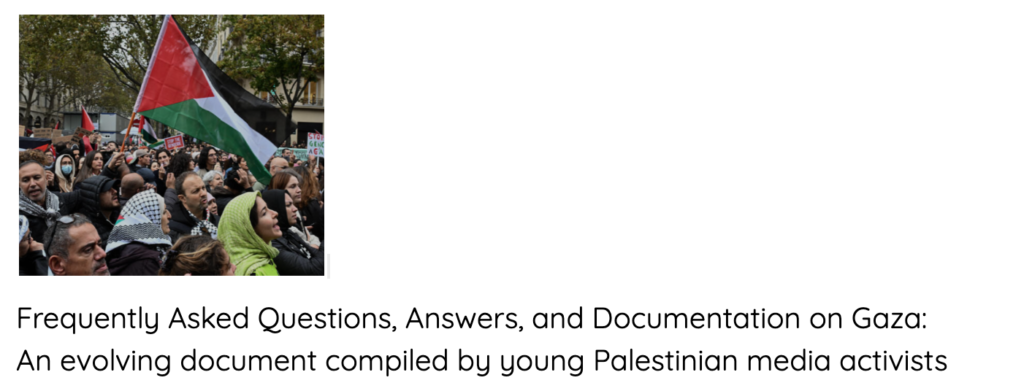
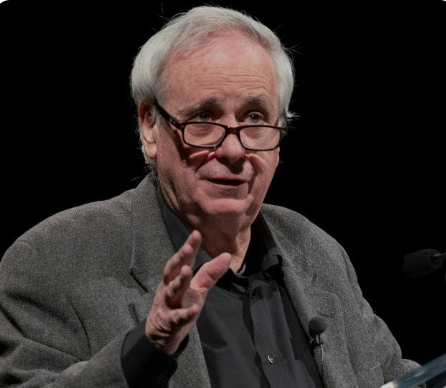
Basic Myths about Palestine by Ilan Pappé
From the brilliant Israeli Professor and Historian Ilan Pappé’s lecture in Buenos Aires, Argentina, April 22, 2017:
It’s important to know about these myths because they inform the coverage of media, the research of the academia and the policy of the governments.
1st Myth) PALESTINE WAS A LAND WITHOUT PEOPLE
Palestine was never an empty land. It was a land with a vibrant society, an urban society, a rural society that went through a process of modernization and development, like the rest of the Middle East. When the Zionist settlers arrived in 1882, they arrived to a land full of people with aspirations and hopes for independence and self-determination.
2nd Myth) THE ZIONIST MOVEMENT WAS A MOVEMENT OF PEOPLE WITHOUT LAND, COMING TO THEIR OLD ANCIENT HOMELAND
I call it the myth of return. You don’t return to a place after after 2000 years. In any other part of the world, if you would say I’ve come back home after 2000 years, it would sound like a joke. In the case of Palestine, it was accepted by the United Nations in 1947 as the basis for the creation of the Jewish state. And still today, a lot of people who support Israel, or are ignorant about Israel, really think that what happened in 1948 was the return of people after 2000 years of exile. And if you take the two myths together, they return to an empty land.
We still teach our children in Israel that the Zionist movement bloomed the desert, that Palestine was a desert and Zionism was the gardeners who made it paradise. This is why even liberal Zionists see Palestinians as aliens, strangers that at best can be tolerated, and at worst have to be kicked out.
3rd Myth) ZIONISM IS A NATIONAL LIBERATION MOVEMENT
Zionism is a settler colonialist movement. It was born as a movement of people in Europe who were under danger, there’s no denying of that. And they were not the only people that were in danger in Europe who went outside of Europe. And they were not the only people who came to someone else’s homeland and decided to eliminate the natives. The difference between Zionism and the other settler colonial movements is of historical timing. They came to a land where the natives were already organized as a modern national society and refused to be eliminated.
The acknowledgment that Zionism was a colonialist movement and Israel is a settler colonial state is very important. It has important implications for the way we talk about the Palestinian resistance, about the peace process and about the future. Still, in many parts of the world, the Palestinian struggle is depicted as terrorism. Because Zionism is not recognized as colonialism. The struggle of the Palestinian national movement against Zionism was classical anti-colonialist struggle. It was not an anti-semitic struggle and it was not a terrorist struggle.
The first Palestinian violent act was an act to defend the native people of Palestine against dispossession. Unfortunately, anti-colonialist struggles in the Arab world were never respected as they were, for instance, in this part of the world. So when you talk about Zionism as colonialism, you talk about the Palestinian liberation struggle as anti-colonialism. And, as I said yesterday, I don’t expect politicians and journalists immediately to adopt this terminology. But I hope at least in the universities they will teach Zionism as colonialism and Palestinian resistance as anti-colonialism.
4th Myth) THE PALESTINIANS IN 1948 LEFT PALESTINE BECAUSE THE ARAB LEADERS AND THEIR LEADERS TOLD THEM TO LEAVE
Today, even people who support the two-state solution and the Palestinian cause would repeat this lie. But we know, as the Palestinians who were expelled know that there was no such a call from the Arab leaders, or the Palestinian leaders, and that the Palestinians were kicked out, expelled by an ethnic cleansing operation in 1948. And this is why, although I respect very much the term Nakba, catastrophe, for what happened in 1948, I think ethnic cleansing is a better term. Catastrophe you don’t know who is responsible for it. Ethnic cleansing you know who is the criminal and who is the victim.
5th Myth) PALESTINIANS MADE A TERRIBLE MISTAKE WHEN THEY DID NOT ACCEPT THE U.N. PARTITION PLAN IN 1947
There was no reason for the Palestinians, as native indigenous people of Palestine, to accept the partition of their own land with a colonialist movement. The settlers came three years before the partition, most of them. They came with a clear ideology of expelling the native people. So, even if the Palestinians would’ve accepted the partition plan, the ethnic cleansing of Palestine would’ve taken place as well. And it makes me very sad to hear even some Palestinians say “maybe we made a mistake in 1947”. No, you did NOT make a mistake in 1947.
6th Myth) ISRAEL IS THE ONLY DEMOCRACY IN THE MIDDLE EAST
Israel kept the Palestinian minority in the land between 1948 to 1967 under military rule. These were Israeli citizens who lived under military rule. And you know what military rule means. It’s not a democracy when there’s a military rule. I don’t have to tell the people of Argentina about this. And since 1967, for fifty years, Israel keeps the people of the West Bank and the Gaza Strip under oppression that cannot be regarded in any way democratic. Israel is a democracy for the Jewish citizens. Like South Africa during Apartheid was democratic for the white people. So there’s no Jewish democracy, this is an impossible term. So, by any definition of democracy, Israel is not a democratic state. And it is important to refute this mythology because, of the basis of this lie, Israel gets away for its policies on the ground.
7th Myth) ISRAEL, IN 1967, HAD TO OCCUPY THE WEST BANK AND GAZA TO DEFEND ITSELF
We know today too much about the 1967 to accept this lie. There was no need for the war and, after the war, it was very possible for Israel not to stay in the West Bank and Gaza. Israel planned the occupation of the West Bank and Gaza already in 1963 and waited for the right moment to do it. This is important to understand that, from a Zionist point of view, Israel could not exist without the West Bank. And here comes the most important myth that is the basis for the peace process.
8th Myth) SINCE 1967 THERE IS A DIVISION IN ISRAEL BETWEEN THOSE WHO WANT TO LEAVE THE OCCUPIED TERRITORIES AND THOSE WHO WANT TO KEEP IT
Even some of my best Palestinian friends fall for this myth. There is no real debate in Israel about the West Bank and the Gaza Strip. There is, ever since 1967, a tactical debate of how best to keep the territories without the people. In 1967, Israel had made three decisions which are the basis for what we call today the peace process.
The first decision was that Israel cannot exist without having the River Jordan as its eastern border. There are two reasons that they give: one is ideological, one is strategic. Ideologically is because the West Bank is the ancient home of the Land of Israel. So even secular Jews would say: Hebron, AlKhalil, Nablus, these are all the heart of our ancient homeland. But the strategic argument is that the Jordan River is a natural barrier that defends the State of Israel. I don’t know if you have seen the River Jordan. Even if you are very old and you have only one leg, you can jump over the River Jordan. This is not a natural barrier against modern army. But you can go to the West Point in America and American generals would explain to you why the River Jordan protects the State of Israel. They have a picture of a huge river. So, the first decision was we have to keep the the territory of the West Bank and, if we can, the Gaza Strip forever.
But the second question that they had to ask themselves were: what do we do with the people? Do we expel them the way we did in 1948? And they decided not to expel massively the people of the West Bank and the Gaza Strip. So, if you don’t expel the people and you keep the territories, are you going to give them citizen rights? And the answer was: no, we cannot give them equal rights because this would defeat the idea of a Jewish majority. So, if you don’t expel the people, you don’t give them rights and you keep the territories, you create a mega prison for the people who live there.
But the only remaining problem is: how will the world react? And will the Palestinians accept this reality? And this is still the question today. Against the world, the Israelis invented what they called “The Peace Process”. We have the minutes of the Israeli government protocol in 1967. It’s very interesting how they talk about the future peace process. They say very clearly that we have to stress the name “process”. Process can go forever. It does not have to end in peace. Is says the message that everything is temporary. And while the process goes on, you colonize the West Bank and the Gaza Strip, and you oppress the people there. And then, when the peace process continues, you say that there are already parts of the West Bank that you cannot give up. But the basic idea is that you talk about the peace process so that the world will let you do what you want in the field itself.
And what do you do if the Palestinians resist to live in such a mega prison? We know what they did against the First Intifada and against the Second Intifada. You use all the military might that you have, regardless of the fact that you are fighting citizens: men, women and children. And you hope that the world will say: this is self-defense against terrorism. And it all comes back to the first myth I was talking about. Because the Jews are the people who return to their home and the Palestinians are the strangers they found there, and Zionism is not colonialism but a national liberation movement, Israel can be protected from any international criticism. I would like to finish by the last myth of many that I don’t have enough time to talk of.
9th Myth) ANTI-ZIONISM IS ANTI-SEMITISM
Zionism is an ideology that has in it racist elements. Its basic idea is that, in the Land of Palestine, only the Jews have to be there. If someone else is allowed to be there it´s because of the kindness of the Zionist movement. This is why Israeli experts advise now the European governments on how to deal with immigrants, because they say: we have a similar problem. They don’t mean Jewish immigration, they mean the Palestinians.
So, if you oppose this ideology, you oppose racism. And you should oppose any form of racism. So how can a position against racism be racism? I know that even in Argentina you can shut the mouth of someone by accusing them of being anti-semitic. Even if they are themselves semitic, that is from Arab origin. I think that it’s time to divorce in the public mind Judaism from Zionism. We oppose what certain Jews are doing to Palestinians and this is what the struggle is all about. And among the people who oppress the Palestinians in Israel are quite a few who are not Jews. There are Christians from Russia, there are Druze who oppress the Palestinians, so it’s not about the identity of the oppressor, it’s about the oppression.
So next time someone says to you: “If you criticize Israel you are anti-semitic”, you should say: “No, I’m philo-semitic, I’m pro-semitic because I want to protect the Palestinians in Palestine, and I’m not anti-jewish because I am a Jew and I don’t understand Judaism as the right to dispossess another people. A Jewish state is not a state that is an Apartheid state, that is a colonizing state that creates a genocide in Gaza. This cannot be a Jewish state. We are anti-racist ethnic state”.
I’m always ready to engage in any conference that deals with racism. But not against just one cause of racism, but against racism as a principle. And the worst racism today in the world is not against Jews, its’s against Muslims. So, if you want to show that you are against racism, your problem is not anti-semitism, but islamophobia. And the problem of racism in Palestine is the racism of Israel against Palestinians, and this is the source of the conflict. And until we don’t get rid of this racism, no solution will be possible. So, if we talk about the two-state solution that leaves Israel as a racist state, we have done nothing. It is our assignment to decolonize Palestine and Israel before we talk about peace in Israel and Palestine. Thank you very much.
